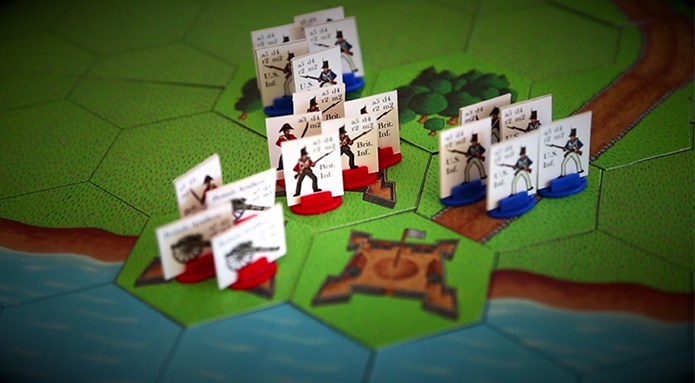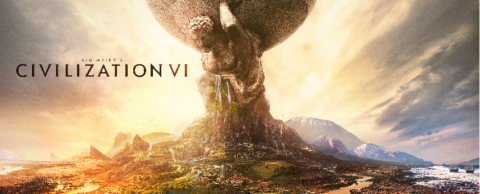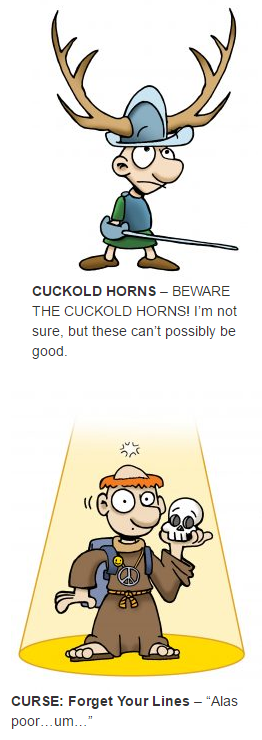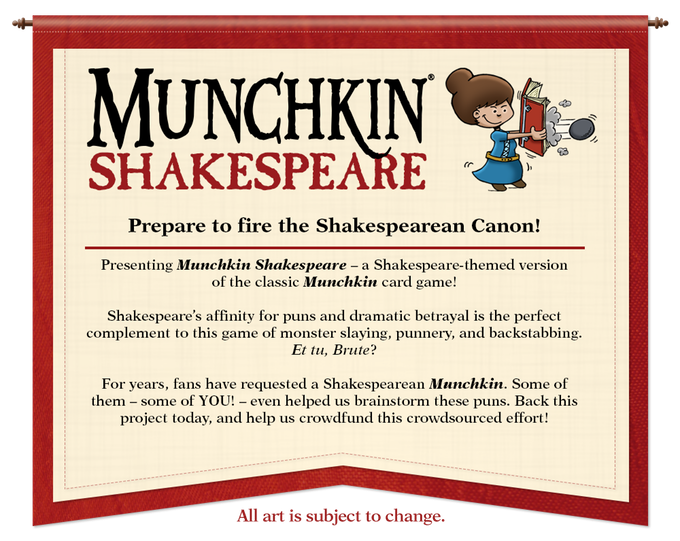Published on 10 Aug 2017
Or how I survived the great Anthony and Cyclone Plague of 2017. If you’ve played, you’ll know what I’m talking about.
August 11, 2017
World of Warships – Operation Killer Whale
August 8, 2017
Mingles with Jingles Episode 209 – British Battleships in World of Warships
Published on 7 Aug 2017
In which I get all excited about incoming British battleships in World of Warships, and then I see the provisional stats of the higher tier ones and read what it is that makes them “special” and start to get a little worried. I’ve stockpiled hundreds of thousands of free xp for these thing, please don’t let them be shit!
Actually you may be able to help me with that. And then I speculate on what happens when a game starts running out of things it can do to make new units different…
July 21, 2017
Behind the Scenes of Naval Legends – HMCS Haida
Published on 19 Jul 2017
Curious about how the Naval Legends episodes are made? Want to know how the beauty shots are made? Then let me take you behind the scenes of Naval Legends HMCS Haida.
Filmed with the permission of Parks Canada, at HMCS Haida National Historic Site.
Special thanks to Nicholas Moran, WarGaming America.
July 12, 2017
World of Warships – Dunkirk
Published on 11 Jul 2017
It’s all well and good for Churchill to promise to “Fight them on the beaches…”, but first he had to get them off the beaches of France to ensure he had anyone to fight them on the beaches of England with…
June 18, 2017
Sabres and Smoke: The War of 1812
Last month, Military History Now profiled a new game (and new Ontario-based game company): unusually for today, it’s not a computer game, but a board wargame:
MHN: Tell us about the game.
Sheppard: Sabres and Smoke: the War of 1812 is a two-player light strategy board game that allows players to relive 16 of the War of 1812’s most important battles. From Queenston Heights to Fort York, players command either the British or American armies in battles that shaped the future of North America.
MHN: Tell us about Hand 2 Hand Entertainment. Who are you guys? How did you get started?
Sheppard: We are based near Toronto, Canada and have been working on Sabres and Smoke: The War of 1812 since July of 2016. I founded Hand 2 Hand Entertainment in 2016, the summer after I finished Grade 12, because I although I was lucky enough to find a summer job, there were no hours available. So, I decided to spend my time combining two things that I really enjoy: history and board games. I started by visiting battle sites from the War of 1812 and doing extensive research to make my game historically accurate. From there I created the battle scenarios and the game rules. Hand 2 Hand Entertainment spent the fall and winter designing Sabres and Smoke: The War of 1812, and preparing to launch a Kickstarter campaign in the summer of 2017. This summer, I am running the company out of the Propel Summer Incubator (PSI) program with the Propel Centre for Entrepreneurship at the University of Western Ontario.
[…]
MHN: The computer wargaming market is enormously popular; what can tabletop games offer that computers can’t?
Sheppard: This is an interesting question. I think there is a certain satisfaction to physically moving units on a battlefield in board games like this. Although you can look at units and terrain from a commander’s perspective in video games, doing it on a board feels more real. Players can look at the board in the same way Generals would have looked at maps when commanding real battles throughout history. I think this is what makes light strategy board games special.
May 24, 2017
ESR presents Open Adventure
Eric S. Raymond recently was entrusted with the original code for ADVENT, and he’s put it up on gitlab for anyone to access:
Colossal Cave Adventure was the origin of many things; the text adventure game, the dungeon-crawling D&D (computer) game, the MOO, the roguelike genre. Computer gaming as we know it would not exist without ADVENT (as it was known in its original PDP-10 incarnation).
Long ago, you might have played this game. Or maybe you’ve just heard stories about it, or vaguely know that “
xyzzy” is a magic word, or have heard people say “You are in a maze of twisty little passages, all alike”,Though there’s a C port of the original 1977 game in the BSD game package, and the original FORTRAN sources could be found if you knew where to dig, Crowther & Woods’s final version – Adventure 2.5 from 1995 – has never been packaged for modern systems and distributed under an open-source license.
Until now, that is.
With the approval of its authors, I bring you Open Adventure. And with it some thoughts about what it means to be respectful of an important historical artifact when it happens to be software.
This is code that fully deserves to be in any museum of the great artifacts of hacker history. But there’s a very basic question about an artifact like this: should a museum preserve it in a static form as close to the original as possible, or is it more in the right spirit to encourage the folk process to continue improving the code?
Modern version control makes this question easier; you can have it both ways, keeping a pristine archival version in the history and improving it. Anyway, I think the answer to the general question is clear; if heritage code like this is relevant at all, it’s as a living and functional artifact. We respect our history and the hackers of the past best by carrying on their work and their playfulness.
May 17, 2017
Sid Meier interview
Last week, Chris Suellentrop talked to the legendary Sid Meier about the Civilization series and other games:
The first Civilization was released more than a quarter-century ago in 1991, after being developed by a team of two – Meier and Bruce Shelley – that grew to 10 at its largest. Meier estimated recently that the budget for the game was around $170,000. He did the programming, the design, and the artwork. “It was kind of an audacious game for us to make,” Meier said during a talk about the game’s development at this year’s Game Development Conference in San Francisco. “6,000 years of history in 640k.”
The Civilization series has now sold almost 40 million copies, according to Take Two, which owns Firaxis. Sid Meier’s Civilization VI, the most recent entry in the series, was released last year. (Even though Meier’s name is on it, the lead designer was Ed Beach.)
At GDC, Meier talked to Glixel for almost an hour with boyish enthusiasm about what makes Civilization work, why Firaxis turns to a new lead designer with almost every sequel, and that whole thing with having his name on the box.
How did it feel to deliver a postmortem on Civilization at the Game Developers Conference to mark the 25th anniversary of the game’s release?
In between the time Civ 1 came out and now, the Internet appeared, modding appeared, Reddit appeared, mobile appeared. So many things have happened in that time. But it’s all within a lifetime.At Firaxis, Civ has been the pillar of what we do. We’re able to find a freshness in it by bringing in different designers. It’s one of the unique things about Civilization. Each iteration is led by a different person. There’s almost a Civ burnout. Once you’ve done a Civ, you’re kind of burned out and somebody else comes in with some fresh ideas.
[…]
What makes a good Civ game?
What happens in the player’s imagination. What we discovered afterwards, just by luck, kind of, was what fueled this “one more turn” phenomenon was the idea that, in your mind, you were always projecting what was going to happen next and what was going to happen three turns from now, what was going to happen eight turns from now. You had multiple irons in the fire. You were exploring this continent. You were dealing with troublesome neighbors. And you had this wonder that was always about to be built. So you were always anticipating what comes next.A good Civ game has that quality, and it’s based in part on the turn-based nature of it. You have the time to imagine what’s going to happen next. You have the time to project your strategy, your ideas into the future. There’s also the anticipation not only of what you’re about to do but what the game’s about to do to you. Genghis Khan is going to show up. Or they’re going to finish the wonder before you. So there’s all those things that you are looking forward to and anticipating.
April 7, 2017
The art of Shakespeare … well, actually the art of Munchkin Shakespeare
John Kovalic reflects on the now-complete artwork for Munchkin Shakespeare:
Munchkin Shakespeare is DONE!
At least my part.
Final tally: about 250 cards, bookmarks, covers, etc.
It was, without question, the largest single Munchkin project I’ve ever tackled at one sitting.
Well, several sittings, really. Over about a two-month period.
The final sitting was the best, though. In London at the time, I wandered around Southwark – Shake-dawg’s stomping grounds – and chose the bar at Shakespeare’s Globe to finish the last few drawings.
[…]
Munchkin Shakespeare was a hugely fun project – but it was also hugely huge, thanks to you monsters and all the stretch-goals you hit.
Would more time have been helpful? Yes. But then, that’s always the case. Point being, Munchkin Shakespeare is going to look fantastic. Most of that is due to the Steve Jackson Games Art Department, which always manages to make my silly little scribblings look great. Those folks are amazing.
Also? The cards are hilarious. I mean, truly madcap, green-eyed, bloodstained tremendous. Thanks to Steve Jackson, Andrew Hackard, and many contributors who threw in crazy ideas during a crowdsourcing braintrust info-dump that launched this too, too silly project.
Here are some first-looks at a few of the cards (Insert usual “Art Not Final” etc. things I’m supposed to say here)!
March 20, 2017
Towards a taxonomy of the tribes of the Alt-Right
A guest post at Catallaxy Files tries to identify the various sub-groups of the larger Alt-Right movement:
The Alt-Right may be described as the group of people who have been cast out of polite, progressive society. It is not a particularly intellectual movement, but this is a characteristic of the mechanism of its formation: Intellectuals as a group largely have the capacity and inclination to avoid being kicked out of polite society. This is not to suggest that the typical member of the Alt-Right is brutish; far from it. One of the characteristics of the progressive movement is its tendency to attack the people for their privilege: the people who choose to become Alt-Right are both able and independently minded. These are people who get things done.
[…]
Who are they and what do they believe? Again, there isn’t exactly a formal list. Moreover, many loudly deny being part of the Alt-Right, while quietly indicating that they are somewhat aligned. There are some identifiable groupings. Among them there are degrees of acceptance of the truths that are colloquially called ‘red pills’ (as per the Matrix). To this end, Vox Day, one of the more intellectually capable individuals who is openly part of the Alt-Right, set out 16 points on which there is general agreement. A new person in the movement – either intellectually curious or recently cast out – may only agree with 3 or 4 of these points. These people are considered ‘Alt-Lite’. Anyone who agrees with the vast bulk of these points is ‘Alt-Right’. Those on the spectrum from White Nationalism to White Supremacy are a subgroup referred to as the ‘Alt-White’; those with a broader view that has scope for all nationalities and peoples as the ‘Alt-West’. Finally, there are a group of generally aligned intellectual strands which are referred to collectively as the Dark Enlightenment.
The Alt-White holds an interesting position within the Alt-Right. From one perspective, they have been cast out the longest, and were also the originators of the term ‘Alt-Right’, which lends them a touch of primacy. At the same time, they are inclined to a degree of overextension and the their intellectual output is targeted at a broader but less educated base than some other groups. There is a degree of tension, especially where white nationalism gives way to white supremacy. […]
The Alt-West seems to be where a lot of those who were cast out from a more liberal or libertarian position seem to end up. These people may have come to the Alt-Right out of Gamergate, out of the computing/technology industry, out of science fiction community, or a number of other incidents. […] Gamergate is a story in itself, starting with a personal feud on a gaming site and morphing into an acrimonious ideological confrontation between an “alt-right” group and the feral left.
The Alt-Lite is really about getting your toes wet. Its transitional. As such it described people in process more than a set community. That said, places like this expose people to a metered dose of this red-pill.
There is another faction that is roughly ‘men’s groups’, men trying to navigate a world that is hostile to them and to family formation. There is some deep stuff in there if you are looking into social interaction, but it’s largely not suitable for ‘polite company’. A number of the men who started that grouping have broadened out from that starting base. See this site or this one for something less given in to the hedonism and base tendencies of the age.
March 2, 2017
Munchkin Shakespeare … I can’t believe this isn’t already a thing
I don’t play games as often as I used to, but the Steve Jackson Games Munchkin series has always been a great source of party entertainment. I just discovered a Kickstarter campaign to produce a new one, called Munchkin Shakespeare, which will end just over a week from now. I know I have several quite serious Shakespeare fans among my readership, so I’d be remiss not to pimp this game to them:
They’ve more than met the initial goal, so the game will be produced, but the number and variety of stretch goals is yet to be fully completed.
January 30, 2017
January 23, 2017
QotD: When “nerd culture” became (kind of) normal
Interestingly, the dot.com bust does not seem to have slowed down or discredited the geek subculture at all. Websites like http://geekculture.com and http://thinkgeek.com do a flourishing business, successfully betting investment capital on the theory that there is in fact a common subculture or community embracing computer hackers, SF fans, strategy gamers, aficionados of logic puzzles, radio hams, and technology hobbyists of all sorts. Just the fact that a website can advertise “The World’s Coolest Propeller Beanies!” is indication of how far we’ve come.
I’ve previously observed about one large and important geek subtribe, the Internet hackers, that when people join it they tend to retrospectively re-interpret their past and after a while find it difficult to remember that they weren’t always part of this tribe. I think something similar is true of geeks in general; even those of us who lived through the emergence of geek culture have to struggle a bit to remember what it was like back when we were genuinely atomized outcasts in a culture that was dismissive and hostile.
There are even beginning to be geek families with evidence of generational transmission. I know three generations of one, starting when two computer scientists married in the late 1960s, and had four kids in the 1970s; the kids have since produced a first grandchild who at age five shows every sign of becoming just as avid a gamer/hacker/SF-fan as his parents and grandparents.
Little Isaac, bless him, will grow up in a culture that, in its plenitude, offers lots of artifacts and events designed by and for people like him. He will take the World Wide Web and the Sci-Fi Channel and Yugio and the Lord of the Rings movies and personal computers for granted. He’ll probably never be spat on by a jock, and if he can’t find a girlfriend it will be because the geekgirls and geek groupies are dating other guys like him, rather than being nonexistent.
For Isaac, Revenge of the Nerds will be a quaint period piece with very little more relevance to the social circumstances of his life than a Regency romance. And that is how we know that the nerds indeed got their revenge.
Eric S. Raymond, “The Revenge of the Nerds is Living Well”, Armed and Dangerous, 2004-12-20.
January 16, 2017
“Crafting. Needs. To. End. It is ruining gaming”
John Ringo posted this on Facebook, and while I don’t play the particular games he references, I’m also finding that in-game crafting (which seemed like such a cool idea when I first heard of it) is really just an extended PITA:
November 29, 2016
QotD: Imagined agency
If you engage with [childrens’] interest, you can also help them toward appreciating and understanding the context, most obviously the history and politics, but also the life lessons to be learned from the decision making and engineering, for example the parable of the Panther and the T34 (tldr: “Good enough now is sometimes better than perfect, later.”)
You can even view stories about soldiers and soldiering as workplace adventures, since most of them hinge on office politics and team building.
And, in this context, the violent video games are just another learning tool, for all that they are also fun and a way to let off steam.
The third cost is more nebulous: imagined agency.
Children don’t have a lot of real agency, and, not only is it hard for a child to imagine modern adult agency, it’s also not very exciting.
One of the reasons action stories are compelling is that the main conflict is explicit and easy to grasp, and character agency simple and tangible: you know who Sharpe is struggling with because they are trying to kill each other; and you know he has agency because he has a unit of men, a rifle, and that big French cavalry sword.
It’s just much much easier to play soldiers in the garden, than aid worker, doctor or even adventurer. After a certain age, a child can only spend so long pretending to climb a mountain or pushing through the jungle undergrowth, but they can spend an entire afternoon enjoying a running skirmish, especially if they have those cool laser tag guns that actually track hits.
If you take away the plastic gun (with it’s don’t-shoot-me orange cap), ban Call of Duty, and censor books with guns and explosions on the cover, then — to me — it feels like you’re saying, Don’t imagine making important decisions, balancing risks, or being proactive.
M. Harold Page, “Children and War Toys and Violent Video Games and Action Stories”, Charlie’s Diary, 2016-11-15.
October 27, 2016
World of Warships British Cruiser Q&A
Published on Oct 23, 2016
Sunday bonus video! A few days ago I had to chance to put some questions to Karsin and Tuccy of the WoWs Dev Team regarding the new Royal Navy cruisers. Here’s what they had to say.








